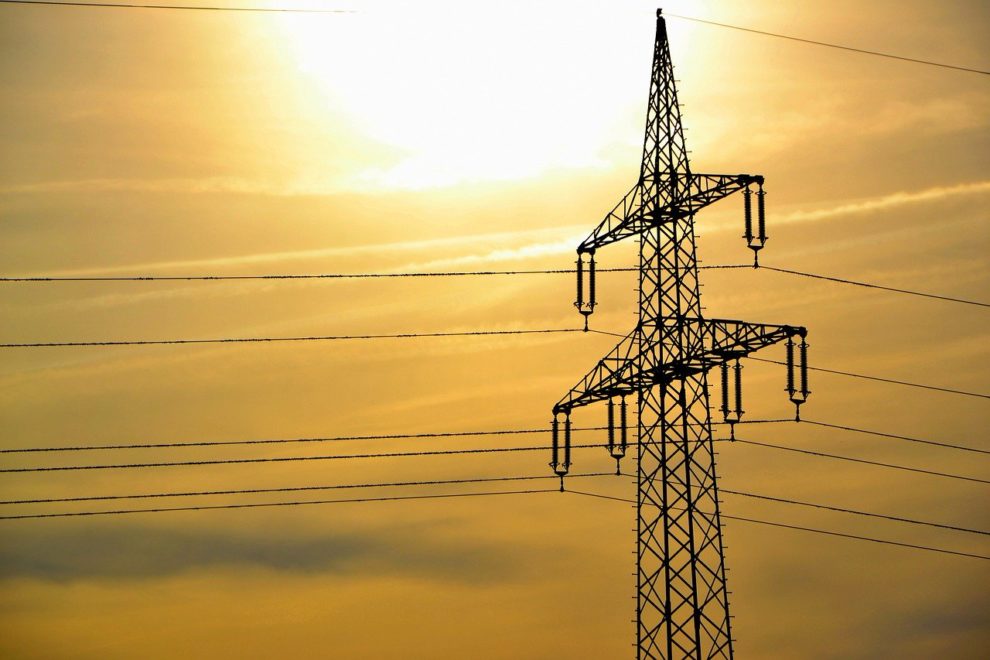Ukraine suffered sweeping blackouts and water supplies were cut for 80 percent of Kyiv residents on Monday after what Ukrainian officials called another “massive” Russian missile attack on energy facilities.
The Ukrainian army said “more than 50” cruise missiles were launched at targets across the country, days after Russia blamed Ukraine for drone attacks on its fleet in the Black Sea.
The army said many missiles were shot down by air defences but Prime Minister Denys Shmyhal said they had caused power cuts in “hundreds” of areas across seven Ukrainian regions.
Several blasts were heard in the capital Kyiv.
“Currently, due to the emergency situation in Kyiv, 80 percent of consumers remain without water supply,” the city’s mayor Vitali Klitschko said on Telegram.
“Engineers are also working to restore power to 350,000 homes in Kyiv that were left without electricity,” he added.
Thirteen people were injured in the strikes, the police was quoted by Ukrainian media as saying.
“Russian terrorists have again launched a massive attack against electricity installations,” said the deputy head of Ukraine’s presidency, Kyrylo Tymoshenko.
The Russian army confirmed it had carried out cruise missile strikes and said they had all reached their intended targets.
Near one of the sites targeted north of Kyiv, a soldier told AFP that three missiles had struck.
“It is dangerous here because there could be more strikes,” the soldier said at a blocked crossroads.
In a nearby town, Mila Ryabova, 39, told AFP she was woken by between eight and 10 “powerful explosions“.
“We were together with my family, preparing my daughter for school, but now there is no electricity in our house and at school,” said Ryabova, a translator.
“I’m not afraid of anything. (Some people) are still in shelters now, but not us.
“But we are worrying and talking about opportunities to move abroad, because there is a cold winter ahead. We may not have electricity, heat supply. It can be hard to handle, especially with a small child.”
A 36-year-old engineer, Viktor, who asked that his surname not be used, said: “Why do they do it? They want to scare us”.
Previous strikes this month have already destroyed around a third of Ukraine’s power stations.
In Moldova, the government said a Russian missile shot down by Ukrainian air defences fell on a village in the north of the country, but without causing any injuries.
The country’s interior ministry said the missile fell on the village of Naslavcea close to the Ukrainian border.
“Instead of fighting on the battlefield, Russia fights civilians,” Ukrainian Foreign Minister Dmytro Kuleba said on Twitter.
Monday’s attack comes after Russia pulled out of a landmark agreement that allowed vital grain shipments via a maritime safety corridor.
The July deal to unlock grain exports signed between warring nations Russia and Ukraine — and brokered by Turkey and the United Nations — is critical to easing the global food crisis caused by the conflict.
But Russia announced Saturday it would suspend its participation in the deal after accusing Kyiv of a “massive” drone attack on its Black Sea fleet, which Ukraine labelled a “false pretext”.
Sevastopol in Moscow-annexed Crimea has been targeted several times in recent months and serves as the fleet’s headquarters and a logistical hub for operations in Ukraine.
Despite Russia’s decision, two cargo ships loaded with grain and other agricultural products left Ukrainian ports on Monday, according to a marine traffic website.
But Kremlin spokesman Dmitry Peskov warned that continuing grain exports without Russian participation was “hardly feasible”.
“It takes on a different character, much more risky, dangerous,” he said.
Twelve ships were due to leave Ukraine on Monday and four were to head to the country, per the Joint Coordination Center that has been overseeing the agreement.
“Civilian cargo ships can never be a military target or held hostage. The food must flow,” Amir Abdulla, UN Coordinator for the Black Sea Grain Initiative, said on Twitter.
“More than two million tons of food” were at sea, but stalled by Russia’s actions, Ukrainian President Volodymyr Zelensky said in his evening address on Sunday.
“Russia is the sole culprit in the fact that food is now going to be more expensive for people across a vast expanse from West Africa to East Asia,” he added.
